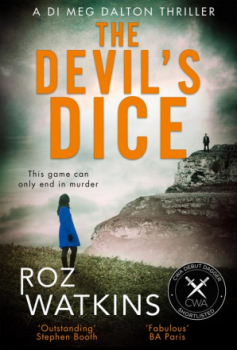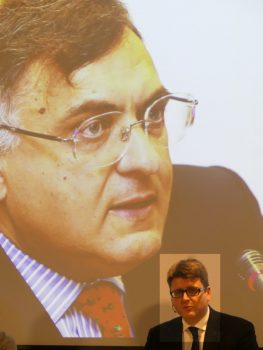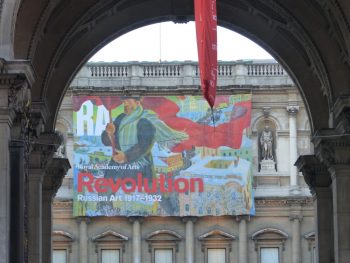This is a recent Spiked tweet. And that’s all it says, so no need to follow that link, unless to you want to chase up other Spikednesses. As well you might.
|
|||||
|
Some time towards the end of last year, my niece Roz emailed me to the effect that she was in London, and would I care to meet up with her for some coffee? I was intrigued. Because of our differing political views, Roz and I have had a polite but somewhat distant relationship. She is into feminism and environmentalism. I am into, well …: see all my other postings here. What was going on? Why this meet-up? I knew some unusual game was afoot. But what? We duly met up, and after some further polite chit-chat, what was afoot was revealed. Roz had written a crime novel, called The Devil’s Dice. This book, she said, was in the process of being published, by a real publisher of the sort that you have heard of. I like crime novels, and I like detective dramas on television. And I know how hard it can be to write anything even as long as a longish blog posting (such as this one is (you have been warned)), let alone a book. So, I was impressed. Although she didn’t spell this out, it was clear that Roz was then at the stage of communicating with everyone she could think of who might be able to help her sell this book. Which also impressed me. Good for her. And good for her also, and good for me, that she was content to include me in this process. Later, an advance copy of the book arrived at my home, in a bright gold bubble-wrapped package, together with some chocolate dice, in a little bag made of bright red netting. I read the book, and found it thoroughly absorbing and entertaining. She writes really well. A quote from the book? Try the dedication:
Roz’s mum, my older sister, was a National Health Service doctor, and her husband was a psychiatric social worker. Short of having parents who were directly involved in the criminal justice machine, like detectives or coroners or forensic pathologists or suchlike, a crime writer couldn’t ask for a better start. Steven Pinker is quoted by John Tierney at the start of his review of Pinker’s Enlightenment Now, saying this:
The mis- (I would say) -use of the word “progressive” to describe people who hate progress is a bit of a hobby horse of mine. I am delighted that intellectual mega-celeb Pinker seems to have found such excellent words to hit this point home. I remember the moment when I had to get plugged into email, some time in the mid-to-late 1990s. I was on the phone and he asked me: What’s your email? I had no answer. He said: oh. It was the way he said it. I knew I had to get an email address sorted immediately. With social media it was much more gradual. For about a decade, the social media were sold to me as mechanisms for me to influence the world. But during that same decade my desire to influence the world slackened, and a rule of mine is: do not unleash solutions upon circumstances which are not a problem. So, no social media. But as time passed, I realised that I wasn’t just not changing the world, I was ceasing to understand it. The more I read things, the more I heard echoes of social media conversations and dramas of which I had no direct knowledge, which had been going on for a fortnight or more before I even heard rather confusing reports about whatever it was. I was losing touch. (In particular I failed to understand the last two US Presidential elections.) So it was that, finally, years after most others of my acquaintance, I have now plugged myself into Facebook and into Twitter. Not that this was easy, mind you. They kept asking me to type in bits of code which I had just asked them to send to me and which they claimed that they had just sent to me but which they never did send to me. But, with help, I eventually got it all sorted. Having waited a decade, the further wait wasn’t a problem. First impression: I greatly prefer Twitter to Facebook. Indeed “greatly” doesn’t communicate the gulf. Twitter is, for me, now, very useful. Facebook is, for me, not useful, at all, not yet and maybe not ever. The basic reason for this disparity of usefulness is that whereas I think I am pretty sure that I understand what Twitter means by the word “follower”, I have no clear idea at all of what Facebook means by the word “friend”. As soon as I got connected to Facebook, a hoard of total strangers sent me emails (or Facebook sent me emails about them) referring to “notifications”, which said something along the lines of: let’s be friends. Who were these people? They didn’t seem like “friends”. More like email spammers. And what would it mean for me to be a “friend” of them? If I shared a home with a Facebook veteran all this would no doubt have been explained to me in about half a minute. But, I do not. Some of the names involved in these Facebook “notifications” I recognised. These were the names of actual friends. I now have three Facebook “friends” who are also real life friends. But frankly, I am learning a lot less about these Facebook-and-real-life friends than I thought I would. I do, after all, possess and make use of: a telephone. And given how little I have learned about these genuine friends from their Facebook postings, I am not inclined to venture further into the great, for me, confusion that is Facebook. It is always pleasing to see one’s immediate personal reactions seeming to be echoed by others, and I am pleased to note that Facebook is being criticised by others who know much more about it than I do. In particular, it is being accused of deranging rather than enhancing people’s social lives, crucially their friendships, and even, to some extent, driving them a bit mad. Perhaps this is just the usual moaning whenever you get a new technique of communication springing upon the world, but I’d be interested to hear what others say about these sorts of complaints. Twitter, on the other hand, is a new friend. “Follower” is a concept that made and makes, to me, immediate sense. No doubt the way that Twitter defines “follower” has ramifications and subtleties of which I am unaware, but the basic idea coincides with reality in a way that Facebook’s notion of “friend”, to me, absolutely does not. My arrival on Twitter coincided almost exactly with the explosion into something resembling mass celebrity of Jordan Peterson, author of the current best seller 12 Rules For Life. This is a man whom I had already noticed, but whom a whole new slice of humanity is now noticing. And I too am now “following” Jordan Peterson. But there is no suggestion, from Twitter or from anyone else, that Jordan Peterson is “following” me, and certainly not that he and I are in any sense “friends”. To Jordan Peterson, I am but one tiny blip in a cacophony of new-found celebrity. The concept of me being Jordan Peterson’s “follower”, in other words, precisely describes what is going on and, equally importantly, what is not going on. I am following him. He has no idea of my existence. Twitter, in other words, makes sense to me because it separates two utterly distinct concepts: me paying attention to you, and you paying attention to me. Twitter also makes sense because attention is just that and only that, attention. It is the lowest form of human relationship, and anyone can start doing it, to anyone they learn about, whenever they please. There are many more things to be said about Twitter and Facebook, and perhaps commenters on this will say some of these things. (I’m thinking of such matters as the ongoing debate about how and how much Twitter and Facebook are politically biased, and how much that matters.) But for now, instead of speculating about things that others know a lot more about than I do, I will instead turn my attention to concocting further Samizdata postings concerning the things which Twitter has told me about. And which Facebook has not. One final point. Some of my favourite Tweets have come to me courtesy of this excellent man. No pressure was put upon me to say that, but say it I do. This elephant doing some tidying up, which this man retweeted a few days ago, is particularly wonderful. Jordan Peterson would surely approve. Last Wednesday, I attended a meeting at the Frontline Club, which is near Paddington Station in west London. The meeting was devoted to the memory of the great Romanian businessman and freedom-championing newspaper owner Dan Adamescu, and the danger now facing Dan’s son Alexander Adamescu. Some friends of mine are also Friends of Alexander Adamescu, and this is me trying to help them. Encouraged by the organisers, I took photos at that meeting, photos of very variable quality, because of my woeful inexperience in what for me were very imperfect lighting conditions. But, I hope that the best of them may be of some use to the cause, and assist Alexander Adamescu’s friends in stirring up more media attention. The cause being that Dan Adamescu was, just over one year ago, imprisoned to death, so to speak, by the government of Romania, and that the government of Romania has for some time now been trying to do something similar to Dan’s son Alexander, after he complained what was being done to his father. Here is a picture of the big picture of the late Dan Adamescu that presided over the meeting, beneath which sat Alexander Adamescu, who spoke at the meeting: As you can see, I did a bit of photomanipulation there, to make it clearer what Alexander Adamescu looks like. Alexander Adamescu now lives in London with his wife (who also spoke most eloquently about Dan Adamescu) and young family. But the government of Romania wants the British government to hand Alexander over to them, so that they can inflict upon him the same sort of parody of justice that they inflicted upon his father. Their instrument of choice to accomplish this is the European Arrest Warrant. → Continue reading: The government of Romania versus the Adamescu family This posting may not see the light of day until tomorrow, or worse, because this evening I have a date at Chateau Samizdata to see in the New Year. But, I will now try to get it posted before the end of the year that it is retrospectively about. And yes, it’s one of those month-by-month photo-postings, one photo for each month. Unlike, say, Michael Jennings, I not only live in London but spend almost all of my time in London, and I spend a lot of that time wandering about in London, taking photos of London’s architecture, of its adverts, of its other photographers, and of its many other oddities, such as this one: I love to discover out of the way spots in London, spots that others don’t know about, but which, if they did, they might enjoy greatly, almost as much as I do. That strange and rather funny sculpture (be patient with this link (to my personal blog) – I do believe it worth the wait), which I photoed in January of 2017, is to be found beside the River Lea, just before it does a kink on its way south. It’s a hard place to describe, because if you look on Google Maps there is little of note in the area. The best I can do is to say that to get to this place, I went to Bromley-by-Bow tube station, went east across the River Lea and then went south, past big warehouses, of the sort that have become so important in this age of computerised shopping. There’s a big Amazon shed there, for instance. The above sculpture concerns itself with the more regular sort of shopping, and what with it being the work of an artist, she thinks that it criticises such shopping. Materialism, the badness of capitalism, consumerism, blah blah. But to me it looks more like a celebration of shopping. Whatever it “is”, I like it. Next up, a photo which notes the fact that exactly a hundred years ago from this year, there was that Revolution, in Russia. I didn’t visit the exhibition that this poster advertises, because I feared that too many of the exhibits would be celebrations of that disastrously destructive event, and would hence annoy me. But I did photo the advert: Thank goodness for the movie The Death of Stalin, which came out later this year, and which I did see. That is very comical, but it is anything but a celebration of Soviet communism. The horrors are not wallowed in photographically, but they are portrayed, in the form of the terror felt by all those who had anything to do with Stalin, and in the form of all the absurd events that Stalin’s most casual instructions were liable to set in motion. Although I promise nothing, I hope to be writing more here about that movie. March, and more politics, this time in the form of a big anti-Brexit demo that I chanced upon, in Parliament Square: It’s tempting to mock this demo as a complete farce. It happened, after all, several months after the Brexit referendum had yielded its result. But although a demo like this attracts little public notice, given that the vote it denounced was, you know, a vote, such demos do still accomplish quite a lot. There is more to politics than mere voters merely voting. Demos, much like indoor meetings (of the sort I continue to hold every month in my own home), strengthen the personal relationships which add up to a political movement, and draw more adherents to the cause, whatever it is. Thanks to this effort, and many other less photogenic efforts, the anti-Brexiteers have been able to put all sorts of political barriers in the way of Brexit, to spread all sorts of doubts in the minds of waverers. I still don’t think they will accomplish their central goal, but they are putting up quite a fight. Festive photos to add to that photo of meat, from Christmas Eve, meat which I was lucky enough to share. That evening we all did much toasting, and one of us photoed all our glasses while we were doing this. Many get angry about the modern habit of photoing food and drink just before it is consumed, but I say: Why not? Where’s the harm? On Christmas Eve I was too busy holding up my own glass and joining in the fun to be photoing it. But, I did take a photo of a very similar event back on December 18th, on Primrose Hill, just to the north of Regents Park: Christmas, or in this case the run up to Christmas, is a time to renew old acquaintances. I don’t know who these people were and how they were connected, and in this time of computerised face recognition, I have deliberately made this difficult with my photo. Friends? Relatives? What I do know is that they were greatly enjoying each other’s company, just as Perry and I and his other guests did on Dec 24th. Later on Christmas Eve I did get my camera out, and I got this shot of our Dear Leader, enjoying a present that one of us had given him, of one of his favourite chocolate treats: On a more serious note, I have been reading Deidre McCloskey’s book, The Bourgeois Virtues. At the beginning of her chapter entitled: The Very Word “Virtue”, McCloskey offers a number of quotes from bygone years, including this one from Benjamin Constant, who until now has been only a name to me. Apparently, in the year 1814, Constant said, in celebration of the greatly increased opportunities for human enjoyment that commerce was at that time beginning to make available to the generality of people, this:
Plus, a bit of spare cash and the chance to spend it on luxuries, like high quality meat (as Perry put it: “Duck with skin turned to quackling, stuffed with pheasant & wood pigeon”), and amusingly packaged chocolate. Here’s another toast, to: stuff. The stuff that has, since Benjamin Constant’s time, so greatly increased, by means of exactly the processes he refers to. Concerning who and what Benjamin Constant was, I have yet to read this. Tomorrow, I intend to. Happy Christmas everyone, what’s left of it. The only time I ever read anything in the Daily Telegraph nowadays is when Guido Fawkes quotes some particularly ridiculous thing in it, and has a good old sneer. Well, just in case Guido missed it, here is another choice item of ridicule-worthy Daily Telegraphy, spotted earlier today by 6k: Expect the GCSE pass rate to dip some more. The original version of the quoted sentence that follows concerned sincerity rather than authenticity, but here is how Marc Sidwell recycles it, in his book about Trump called called How To Win Like Trump (which as of now you can download for free):
The above slight-mis-quote appears at the beginning of the part of Sidwell’s book entitled “Secret Five: Appear Authentic”. Appear Authentic, not Be Authentic. The reason I here re-quote this slight-mis-quote is to emphasise that although Marc Sidwell’s book is an admiring attempt to explain How Trump Did It, he by no means swallows the Trump myth whole. Rather does he analyse, among much else, how this Trump myth was created, and then swallowed whole and spread by an amazing number of Americans, including an amazing proportion of Trump’s enemies. After all: “Blurts out every piece of crap that enters his ridiculous looking head” is but a rude way of saying: “Here’s a guy who says what he thinks and means what he says”, “Here’s a guy who’s authentic”. I am learning a lot, some of which I had long suspected, and am enjoying this book very much. If you hate Trump, you probably wouldn’t enjoy this book nearly so much, but you would surely learn a lot. Sidwell continues:
Ah yes, “start a conversation”. That phrase began life as a way of actually saying something, but now it sounds to me like just another of those “ritual phases” (typically now used to excuse the incoherence and/or non-existence of anything actually being said) that died the death several years ago. What Trump does with his brilliantly “authentic” tweets is start slanging matches from which he emerges the winner, as Sidwell himself well explains. (See in particular his stuff about Trump’s participation in the world of televised wrestling.)
In other words:
See also: Jacob Rees-Mogg, who I and quite a few other Brits now hope will be our next Prime Minister. This peculiar man resembles Trump in deviating, but in a very different direction, from the scripted-to-death style, in his case by being coherent and educated and patrician. When Rees-Mogg starts a sentence, he finishes it, and he does this in a manner which makes no attempt to hide the expensiveness and the well-connectedness of his education. Rees-Mogg is happily honest about his poshness in the same way that Trump is happily honest about being, as his son put it, a “blue-collar billionaire”. Trouble is, see also: Jeremy Corbyn. Like Rees-Mogg, Corbyn also comes across as not-a-Blair-clone. He presents himself as exactly the sub-academic tyranny-worshipping junk Marxist that he is. I feel towards Corbyn the same amount of fear and detestation as Trump’s enemies feel towards Trump. This is because a terrifying proportion of Britain’s voters seem now to feel that, because Corbyn is unapologetically sincere in his desire to ruin my country, he is at least sincere, and therefore a good egg. But if what you say is wicked, then meaning it is not a virtue. LATER, re Corbyn (my thanks to first commenter below Brian Swisher), the late and much missed Helen Samuely: “Well, at least he has principles”. The EU is very complicated and confusing, which is a big reason for Brexit. But also very complicated and confusing, say the Remainers, is the process of Britain getting out of the EU. For that reason, they say, best to stay in. But I say that the more complicated and confusing it is to get Britain out, the more reason there is for Britain to get out. The more complicated getting out is, that means the more complicated the damn thing itself must be. The question becomes: Which is better? Complication for a year or three, while we extricate ourselves from this ghastly morass? Or: Complication for ever as we sink ever deeper into it? I say we should, you know, go with the result of the Referendum, and get out. Happily, that is now happening. Lee Rotherham at CapX agrees:
Quite so. Another Remainer argument which has a similar logical structure is that the EU, in addition to being diabolically complicated and confusing to get out of, on account of itself being diabolically complicated and confusing, is also determined to stop us Brits getting out easily. The only exit terms we will ever be able to extract from it will be crushingly punitive. Ergo, we should stay. Britain’s exit deal may indeed prove costly to us. If EUrope lets us out easy, other rebellious bits of EUrope may also then try to leave. But if such punitiveness happens, it will happen at the expense of EUropeans, who will find trading with Britain more costly, as well as at the expense of us Brits. And I say that the exact degree to which the rulers of the EU put the perpetuation of their own power ahead of the welfare of the people whom they will still rule, and ahead of the welfare of people generally, then to that exact degree they are a pack of megalomaniacs, of whom we Brits are well rid. The more punitively they are now behaving, the stronger is the case for us Brits to escape from their megalomaniac clutches, no matter what the short-term cost may be. Last weekend I had a nice little surprise. Guido, in his Seen Elsewhere section, linked to a piece by Carl Packman entitled Of course I Remember When Ian Hislop was Eurosceptic. I clicked on Packman’s piece, because I too remembered when Ian Hislop was very EUrosceptic indeed. In particular, I remembered an amazing diatribe which erupted from him on BBC TV’s Have I Got News For You, way back in early 2003. I recalled this Hislop eruption because I wrote a piece for Samizdata about it at the time. Hislop is now a Remoaner, but he certainly wasn’t then, as I then noted, and as Packman recalls and records. What I did not anticipate, when I began reading Packman’s piece, was that Packman would include in his piece a quote from that same Samizdata posting of mine. Very pleasing. What goes on the internet stays on the internet, provided only that someone is curating it capably, and even if it was posted way back in May 2003. It is no big criticism of Carl Packman to say that he seems to have read that one Samizdata posting, but not any other EUro-postings here, and maybe not any other postings here at all, apart from that one. (Fair enough. I have only read this one piece of his.) And Packman seems to have got the idea that we Samizdatistas were not then at all happy about the fierceness of Hislop’s EUro-scepticism. But I for one was delighted by it, and most of our commenters on that posting, and most Samizdata writers and commenters from that time until now, have been very critical of EUrope. It was just that in that particular posting I was concentrating on what Ian Hislop had said and on why it mattered, rather than including a lot of other stuff about why I personally agreed with him, which I did, and was delighted that he had said it, which I was. Indeed, having done some digging back into my other EUro postings here from around that time, I have been surprised by how early and how vehement my personal hatred of the EU and all its works was. Trust me, there’s plenty more EUro-detestation from me in the Samizdata archives. Not everyone who has written for Samizdata hates the EU, but it seems that I have hated it from way back. What is more, this hatred, from me and from others here, might actually have had consequences. The other thing that occurs to me about Ian Hislop’s apparent volte face over EUrope is that there is one way in which he was and is being entirely consistent. Hislop, I believe, really does believe in speaking, if not always truth exactly then at least insults, to power, unlike a lot of the people who merely say that they do. Well, now, thanks to the Brexit vote in the EUro-referendum, Brexit is a dominant political orthodoxy. And Hislop is now determined to keep the argumentative pot good and stirred about the wisdom or lack of it of that attitude. In 2003, on the other hand, when Prime Minister Tony Blair was riding high, very few people indeed would have then have foreseen that Brexit would eventually happen. (I certainly didn’t expect it. I didn’t expect that we would be allowed a vote about it, and until the Brexit vote actually happened, I didn’t think that it would happen.) Which means that, then and now, Hislop was and is aligning himself against the dominant orthodoxy of the time. It’s just that this orthodoxy changed. Yes, on the mere EUrope issue, Hislop is now revealed as a turncoat. But he turned his coat for a very respectable reason. Packman, in his piece, ruminates upon what Hislop really thinks. I think that what Hislop really things is that raspberries and rotting vegetables and brickbats and mockery should always be thrown at whoever and whatever, politically, happens to be in charge at any given time. If only to keep alive the principle that this can be done. Compared to that principle, Hislop’s supposed principles about the mere details of this or that political argument are, to him, relatively unimportant. (See also this posting by me here, also from way back, ahout John Gray, another man who has often been accused of being inconsistent. Gray is presumably even now ruminating about how the hopes now being placed by the likes of me in the benefits of Brexit will be dashed. Because: doom, doom, doom. I couldn’t find any Gray stuff yet along these lines. He seems so far to have confined his EUro-pessimism to the future of EUrope rather than the future of the UK. But once Brexit is sorted and the optimism over here really starts to kick in, trust me, Gray will be heard saying that it will all end in ruin and despair. In Gray world, everything that people think might be really good always ends in ruin and despair, regardless of whether it actually turns out like that for real. And the good news is that he is usually wrong.) The Guardian has the story, here. |
|||||

All content on this website (including text, photographs, audio files, and any other original works), unless otherwise noted, is licensed under a Creative Commons License. |
|||||











